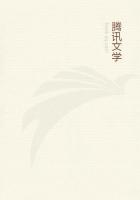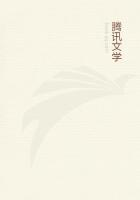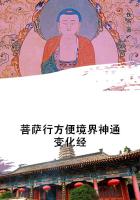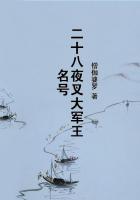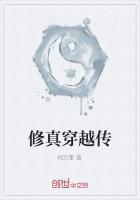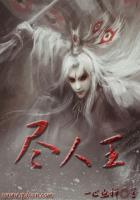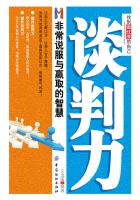But it is chiefly as a poet that we wish to consider Lanier, and I turn to the posthumous edition of his `Poems' gotten out by his wife.
At the outset let us ask, How did the poet look at the world?
what problems engaged his attention and how were they solved?
A careful investigation will show, I believe, that, despite the brevity of his life and its consuming cares, Lanier studied the chief questions of our age, and that in his poems he has offered us noteworthy solutions.
What, for instance, is more characteristic of our age than its tendency to agnosticism? I pass by the manifestations of this spirit in the world of religion, of which so much has been heard, and give an illustration or two from the field of history and politics.
Picturesque Pocahontas, we are told, is no more to be believed in;moreover, the Pilgrim Fathers did not land at Plymouth Rock, nor did Jefferson write the Declaration of Independence.Which way we turn there is a big interrogation-point, often not for information but for negation.Of the good resulting from the inquisitive spirit, we all know; of the baneful influence of inquisitiveness that has become a mere intellectual pastime or *******ish agnosticism, we likewise have some knowledge; but the evil side of this tendency has seldom been put more forcibly, I think, than in this stanza from Lanier's `Acknowledgment':
"O Age that half believ'st thou half believ'st, Half doubt'st the substance of thine own half doubt, And, half perceiving that thou half perceiv'st, Stand'st at thy temple door, heart in, head out!
Lo! while thy heart's within, helping the choir, Without, thine eyes range up and down the time, Blinking at o'er-bright Science, smit with desire To see and not to see.Hence, crime on crime.
Yea, if the Christ (called thine) now paced yon street, Thy halfness hot with his rebuke would swell;Legions of scribes would rise and run and beat His fair intolerable Wholeness twice to hell."`Acknowledgment', ll.1-12.
More hurtful than agnosticism, because affecting larger masses of people, is the rapid growth of the mercantile spirit during the present century, especially in America.This evil the poet saw most clearly and felt most keenly, as every one may learn by reading `The Symphony', his great poem in which the speakers are the various musical instruments.
The violins begin:
"O Trade! O Trade! would thou wert dead!
The Time needs heart -- 'tis tired of head."Then all the stringed instruments join with the violins in giving the wail of the poor, who "stand wedged by the pressing of Trade's hand":
"`We weave in the mills and heave in the kilns, We sieve mine-meshes under the hills, And thieve much gold from the Devil's bank tills, To relieve, O God, what manner of ills? --The beasts, they hunger, and eat, and die;And so do we, and the world's a sty;
Hush, fellow-swine: why nuzzle and cry?
"Swinehood hath no remedy"
Say many men, and hasten by, Clamping the nose and blinking the eye.
But who said once, in the lordly tone, "Man shall not live by bread alone But all that cometh from the throne"?
Hath God said so?
But Trade saith "No":
And the kilns and the curt-tongued mills say "Go:
There's plenty that can, if you can't: we know.
Move out, if you think you're underpaid.
The poor are prolific; we're not afraid;
Trade is Trade."'
"Thereat this passionate protesting Meekly changed, and softened till It sank to sad requesting And suggesting sadder still:
`And oh, if men might some time see How piteous-false the poor decree That trade no more than trade must be!
Does business mean, "Die, you -- live, I"?
Then "Trade is trade" but sings a lie:
'Tis only war grown miserly.
If business is battle, name it so.'"
`The Symphony', ll.1-2.
`The Symphony', ll.31-61.
Of even wider sweep than mercantilism is the spirit of intolerance;for, while the diffusion of knowledge and of grace has in a measure repressed this spirit, it lacks much of being subdued.I do not wonder that Lanier "fled in tears from men's ungodly quarrel about God,"and that, in his poem entitled `Remonstrance', he denounces intolerance with all the vehemence of a prophet of old.
But Lanier had an eye for life's beauties as well as its ills.
To him music was one of earth's chief blessings.Of his early passion for the violin and his substitution of the flute therefor, we have already learned.According to competent critics he was possibly the greatest flute-player1 in the world, a fact all the more interesting when we remember that, as he himself tells us,2 he never had a teacher.
With such a talent for music the poet has naturally strewn his pages with fine tributes thereto.In `Tiger-lilies', for instance, he tells us that, while explorers say that they have found some nations that had no god, he knows of none that had no music, and then sums up the matter in this sentence: "Music means harmony;harmony means love; and love means -- God!"3 Even more explicit is this declaration in a letter of May, 1873, to Hayne: "I don't know that I've told you that whatever turn I may have for art is purely MUSICAL;poetry being with me A MERE TANGENT INTO WHICH I SHOOT SOMETIMES.
I could play passably on several instruments before I could write legibly, and SINCE then the very deepest of my life has been filled with music, which I have studied and cultivated far more than poetry."4We have already seen incidentally that in his `Symphony'
the speakers are musical instruments; and it is in this poem that occurs his felicitous definition,"Music is love in search of a word."5In `To Beethoven' he describes the effect of music upon himself:
"I know not how, I care not why, Thy music brings this broil at ease, And melts my passion's mortal cry In satisfying symphonies.

